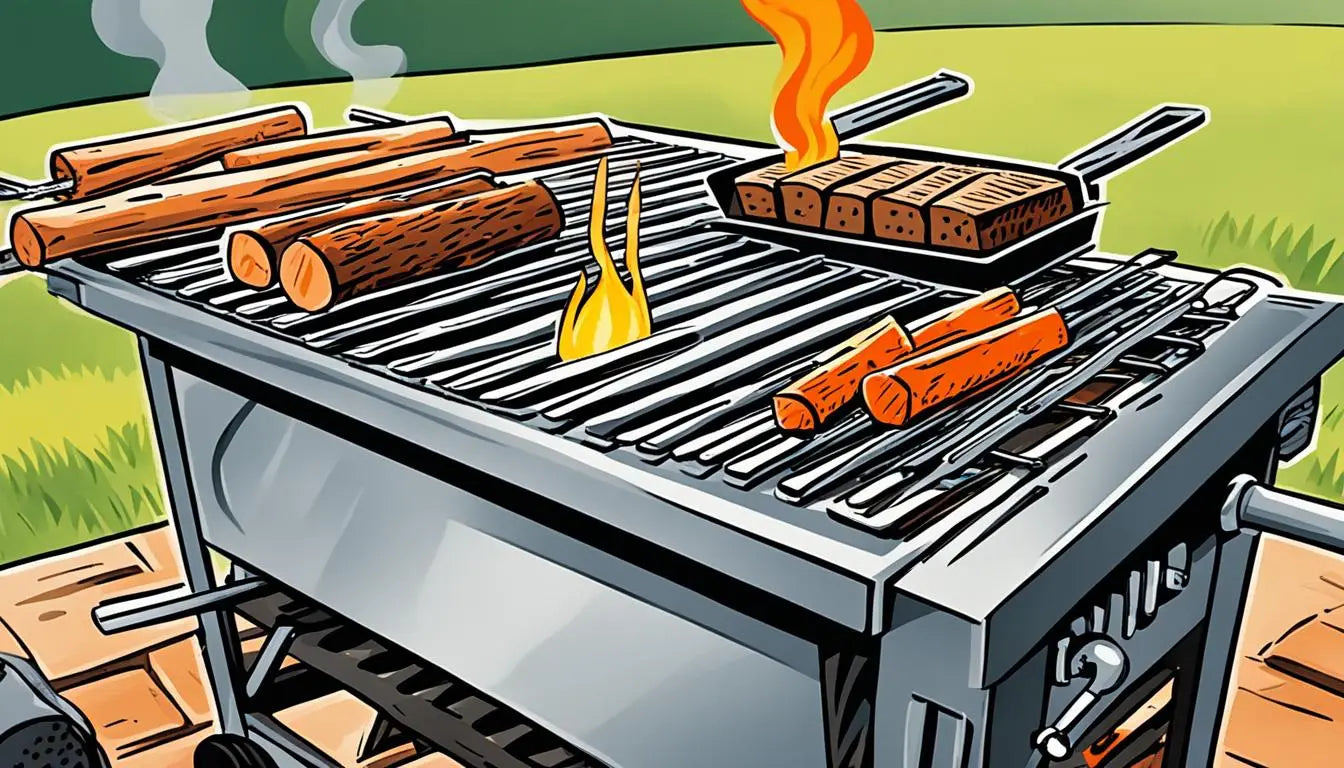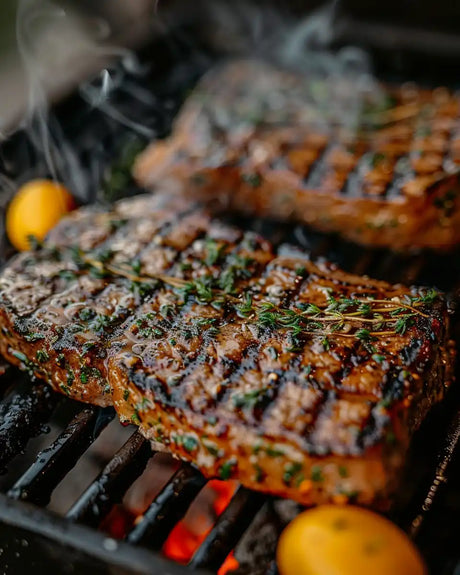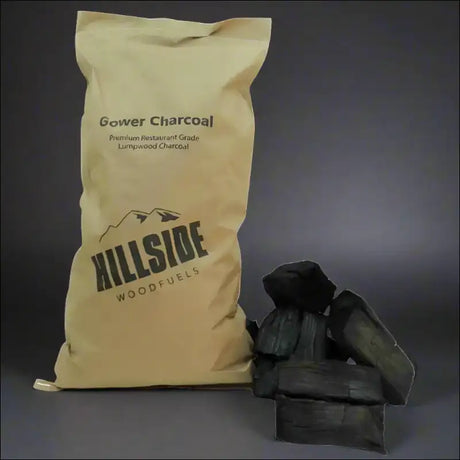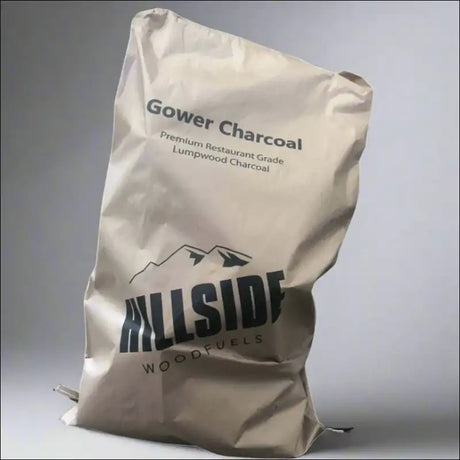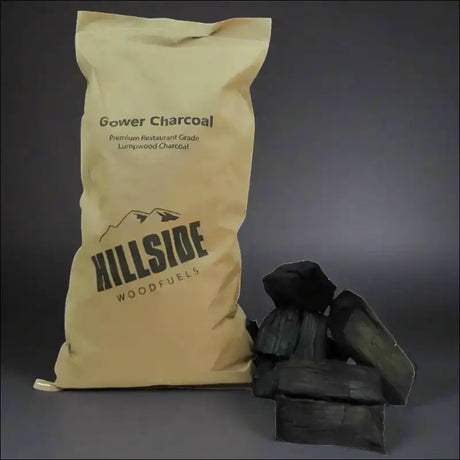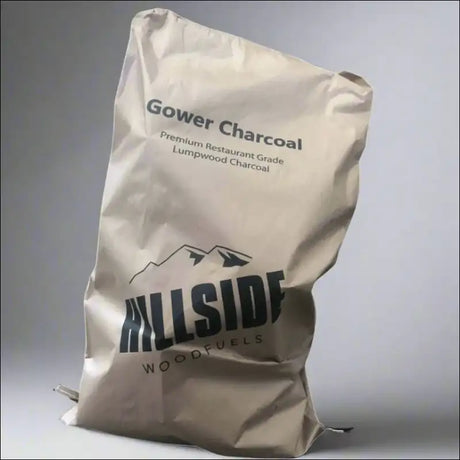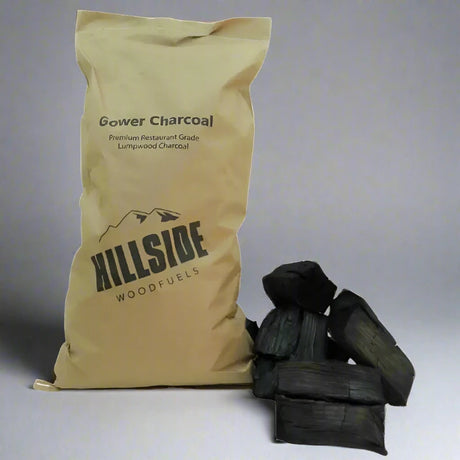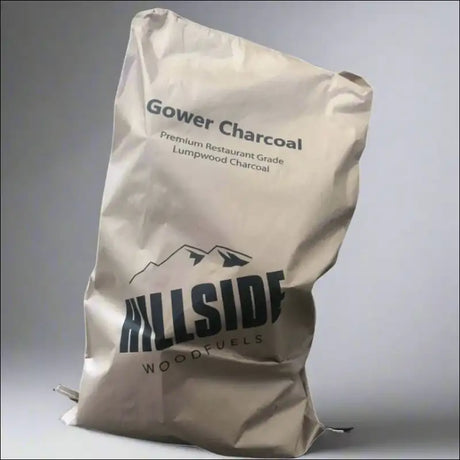As the British summer arrives, our gardens and patios turn into BBQ stages. People stand by their fuel choice: charcoal's smoky taste, logs' rustic charm, or gas' clean ease. These choices speak volumes of flavour and tradition, each with its own grilling tales. The debate over charcoal, logs, and gas is as heated as discussions about football clubs. Let's gather to see which might be the best for our unpredictable weather and delicious BBQs.
With spatula and tongs in hand, maybe even a special marinade, we face a choice. Do we prefer gas BBQ's quick heat, or the tradition of starting charcoal or logs? Let's explore the unique aspects of each method, led by the inviting smell of grilled treats. Our journey could help us decide better.
Key Takeaways
- Understanding charcoal, logs, and gas differences can boost your BBQ.
- Charcoal brings smoky flavours; logs add wooden aromas to meals.
- Gas grills offer ease and cleanliness but might lack flavour.
- Each fuel has benefits in heat control, upkeep, and preparation.
- Choosing the best grilling method means balancing taste and convenience.
Understanding the Core Differences of BBQ Fuels
Grilling fans often argue about which BBQ fuel is best. Each type offers unique benefits for cooking. Knowing the differences is key to choosing the right one. This includes considering the heat, taste, cleanliness, and upkeep.
The Heat Factor: Charcoal, Logs, and Gas Compared
Heat factor matters a lot in cooking. Restaurant-grade charcoal gets hotter than normal types. This helps sear meat perfectly. It also burns longer, making it good for long BBQs.
Gas provides steady heat that's easy to control. But logs give a varied heat based on the wood like ash, oak or hickory.
Flavour Profiles: How Fuel Type Affects Taste
The fuel you use changes how your food tastes. Restaurant-grade charcoal adds a smoky flavor. It makes food taste better. Gas gives a cleaner taste, while logs add a special smokiness depending on the wood.
Cleanliness and Maintenance: What to Expect
Gas wins for being clean and easy to maintain. It leaves little mess. Charcoal and logs need more cleaning because of ash and soot. Yet, restaurant-grade charcoal is less smoky than usual types and it keeps the grill cleaner.
| Fuel Type | Heat Factor | Flavour Enhancement | Cleanliness | Maintenance |
|---|---|---|---|---|
| Restaurant-grade Charcoal | High | Distinctly Smoky | Cleaner | Moderate |
| Gas | Consistent | Clean | High | Low |
| Logs | Variable | Wood-specific | Moderate | High |
Looking into BBQ fuels means thinking about many things. You need the right heat for a great sear. You'll want the flavors to make every mouthful amazing. And don't forget about cleaning up afterwards. Each fuel type has its own pros and cons and they can affect how well your BBQ goes.
Examining Charcoal for Traditional Grilling
Charcoal is loved by traditional grill fans for its rich, smoky taste. Choices vary, with restaurant grade charcoal at the forefront in professional settings. It offers longevity and consistency. We'll explore lumpwood and briquettes, highlight temperature control, and discuss the benefits of storage and portability with charcoal.
Charcoal Types: Lumpwood vs Briquettes
Lumpwood and briquettes mark the main charcoal types. Lumpwood charcoal, made from hardwoods, lights quickly and burns hot. This makes it great for searing and flavouring food.
Briquettes are shaped uniformly and burn steadily. However, some say their additives can alter food taste. But lumpwood's heat and natural state make it a favourite for grilling.
Temperature Control with Charcoal
Controlling temperature is crucial in grilling, and charcoal is excellent at it. Using restaurant grade lump charcoal allows for intense heat, ideal for searing. These charcoals are clean and free from harmful chemicals. Plus, they come in various sizes, meeting the needs of both professional and home grills.
Storage and Portability Advantages
Charcoal grilling shines in storage and portability. Unlike gas grills, charcoal grills can move anywhere. Charcoal doesn't expire and stays dry in sealed containers. This makes it great for cooking in different places.
Choosing lumpwood or briquettes depends on personal taste and grilling needs. Yet, charcoal's benefits, like versatile temperature control, ethical sourcing, and easy storage make it a top choice for traditional grilling.
The Case for Logs in Enhancing Flavours
When you dive into grilling, you notice how logs boost flavours. They make an ordinary BBQ special with natural tastes. In this section, we talk about choosing the best wood. We also discuss how to easily light and keep fires going with logs.
Choosing the Right Wood for Grilling
Finding the right logs for grilling is as important as the food. Each wood type adds its own smoke and taste. This can make your grilled dishes much better. For example, oak logs burn steadily and give a traditional smoky flavour. Hickory, with its stronger, bacon-like taste, is great for pork and ribs.
Natural Flavour Infusions: Oak, Hickory, and More
Beyond oak and hickory, there are many woods to enhance flavours. Maple adds a subtle sweetness perfect for poultry and veggies. Mesquite's strong taste suits beef well. Apple and cherry woods give a fruity touch ideal for chicken and fish. Using these woods turns grilling into making experiences.
Ease of Lighting and Maintenance Challenges
It's important to think about how easy logs light, which depends on the wood and conditions. Dry, well-seasoned logs light quickly and burn well. This makes them easier to manage. Yet, keeping a log fire going needs you to watch closely. This ensures even temperatures. Storing wood right is crucial to stop it from getting damp, which makes lighting and burning hard.
Learning about logs and taking care of them makes your food taste exceptional. Although logs need some effort to maintain, the flavours they add are worth it. Below is a table to help you pick the best wood for your next BBQ:
| Wood Type | Flavour Profile | Ideal For | Burn Quality |
|---|---|---|---|
| Oak | Traditional smoky | Beef, sausages | Steady, moderate |
| Hickory | Strong, bacon-like | Pork, ribs | Steady, robust |
| Maple | Subtle sweetness | Poultry, vegetables | Even, mild |
| Mesquite | Earthy, strong | Beef, game | Fast, intense |
| Apple | Light fruity notes | Chicken, fish | Gentle, slow |
| Cherry | Sweet fruity essence | Pork, poultry | Mild, aromatic |
Choosing the best wood and being good at managing your grill lead to amazing meals. Being able to light logs easily and manage them while cooking is a skill. The complex flavours and joy from cooking with logs show why many love it. This challenge is part of the charm, giving great tasting results.
Switching to a Gas Grill: Modern Convenience
The humble gas grill is now seen as the go-to for modern convenience in BBQs. Thanks to their fast quick heating, gas grills change the way we do outdoor cooking. They bring together efficiency and clean use, making BBQ prep and care easier. However, some BBQ lovers miss the lacking smoky essence you get from traditional wood fires. Let's look at why many prefer gas grills, focusing on storage and mobility.
Gas BBQ: Quick Heating and Clean Use
Gas grills heat up in no time, fitting our busy lives perfectly. Their easy start and steady heat mean less checking is needed when cooking. The clean use aspect of gas grills also stands out, making post-BBQ clean-up much simpler. Forget about messy ashes; gas grills keep things tidy.
The Downside: Lacking the Smoky Essence
Gas grills are efficient, but they can't give food the smoky taste that charcoal does. Missing this flavour can make some meals feel less authentic. This is a big downside for those who prize cooking as an art form over simplicity.
Contemplating Storage and Mobility for Gas Grills
Gas grill designs now consider both storage and cooking performance. There are small grills for tight spaces and big ones for those with room. Plus, moving them is easy thanks to built-in wheels and light materials.
| Feature | Charcoal Grill | Gas Grill |
|---|---|---|
| Heating Time | 20-30 minutes | 5-10 minutes |
| Flavour | Smoky | Milder |
| Clean-up | Messy, ash disposal | Minimal; easy wipe-down |
| Mobility | Dependent on model | Often designed with wheels |
| Storage | Bulkier varieties challenging | Designed with space in mind |
Why Grill Masters Are Choosing Charcoal Over Gas
In the UK, grilling is a beloved tradition. Many people now prefer charcoal because it offers a genuine smoky taste. Statistics show that the interest in charcoal grilling is growing. This is due to its unique cooking qualities.
Charcoal grills give a special smoky flavor that can't be matched. Culinary lovers believe it makes food taste better. Also, these grills can reach high temperatures easily, making them top choice for a true BBQ experience.
Grilling takes skill and understanding. Knowing how to use direct and indirect heat is key. It's these skills that are highly valued among grill masters.
Choosing the right grilling tools is also important. Tools that meet safety standards, like UL certifications, improve your grilling. They make sure the grill lasts long and is safe to use, with warranties for peace of mind.
For those wanting a pure grilling experience, charcoal wins over gas. While gas grills are easier to control, charcoal offers unmatched taste. Adding wood chips can even enhance this flavor more.
Personal choices and lifestyles play a big role in choosing grills. Electric grills are convenient and easy to maintain. Yet, UK grillers are drawn to charcoal for its unmatched allure and the fun of grilling it offers.
The choice of charcoal over gas is complex. It's about chasing the best taste and the joy of traditional cooking. This is an experience gas grills can't fully emulate.
Logs for Grilling: A Rustic Twist to Your BBQ
Introducing logs for grilling can add a rustic twist to your BBQs. They're more than just fuel; they bring multifunctional use. This versatility extends to fireplaces and outdoor fire pits, offering warmth and nostalgia.
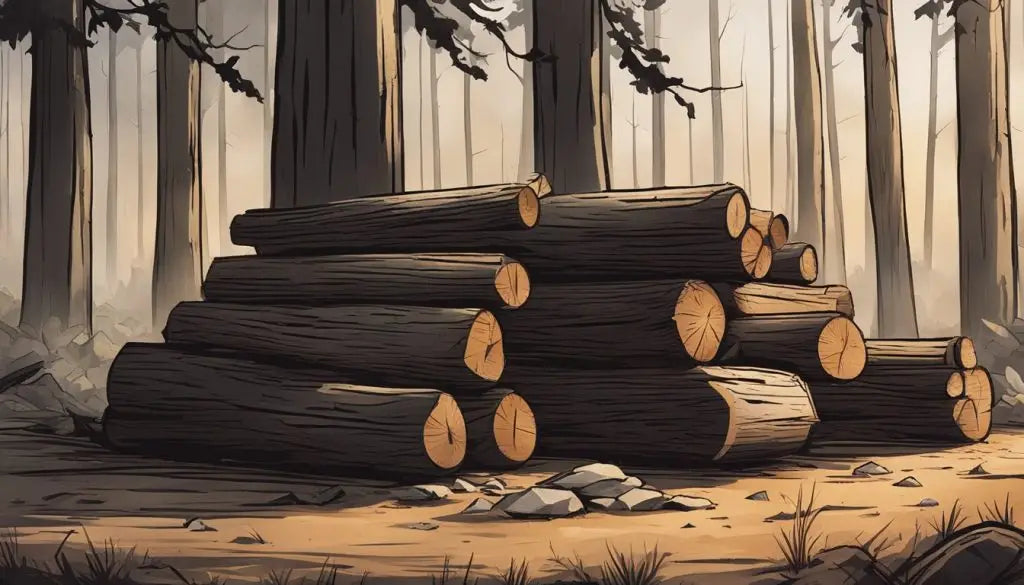
Using logs for open-flame cooking adds undeniable charm. For optimal heat, mix logs with charcoal. This method, especially when layering logs with charcoal, provides steady temperatures. It's perfect for grilling various foods just right.
Multifunctional Use: BBQs, Fireplaces, and Beyond
Logs are incredibly versatile. They're not just for BBQs but also enhance fireplace atmospheres. Whether it's backyard gatherings or countryside camping, logs prove essential for various settings.
Layering Logs with Charcoal for Optimal Heat
Maintaining optimal heat is key for juicy meats. Layering logs with charcoal not only prolongs burning. It also adds a smoky flavour, making dishes even more delicious for BBQ lovers.
Choosing the right charcoal for your logs involves several factors. Consider heat output, smoke flavour, burn time, and the environment. The market offers various sustainable hardwood ash lump charcoals. This choice supports eco-friendly grilling.
Looking for deep flavour from charcoal grilling or the aroma of logs? Combining both offers a versatile, impactful cooking method. With every item available, from lump charcoal to lumpwood, your BBQ will be top-notch and flavourful.
A Deep Dive into the Gas Grilling Experience
Gas grilling shines in the modern outdoor cooking scene. It's seen as easier to handle compared to charcoal. Yet, does this ease benefit the cook in every way, or are there downsides? We'll look closely at gas-powered grilling to see if the advantages truly stand out.
The Cleanliness Factor: Is It Worth It?
Gas grilling is prized for being clean. It leaves behind no ash or soot, unlike charcoal. Also, despite chefs liking restaurant-grade lumpwood charcoal for its clean burn, gas grills simplify cleaning. This makes gas grills a top choice for efficient cooks.
| Fuel Type | Cleanliness Scale (1-10) | Time Spent on Cleanup |
|---|---|---|
| Gas Grilling | 9 | Minimal |
| Lumpwood Charcoal | 5 | Moderate |
| Charcoal Briquettes | 4 | Considerable |
Gas Grill's Rapid Heating: Blessing or Curse?
The quick heat-up of rapid heating appeals to many. It means you can start cooking almost right away. But, does this fast heating take away from the art of grilling? And, how do users view it regarding all grilling methods?
Some say the quick start lacks the traditional BBQ ritual. Yet, others praise gas grills for their convenience and consistent heat. They save time and ensure even cooking. However, they might not offer the deep flavours that come from a slow charcoal burn, crucial for true BBQ lovers.
Charcoal vs Logs vs Gas for Grilling: A Direct Comparison
Choosing the right grilling method means looking at each fuel type's pros and cons. This direct comparison of charcoal, logs, and gas helps you pick based on what you like and what you need.
Charcoal gives a smoky flavour that BBQ lovers chase. But, starting it and keeping the heat right takes work. It's also a bit messy to clear up and not great for the planet.
Logs add a special woody taste that changes with the wood type. They're bulkier than charcoal, making them harder to move and store.
Gas grills heat up fast and are easy to clean. But, they can't match the flavour charcoal and logs provide. And some BBQ fans think gas grilling just isn't the real deal.
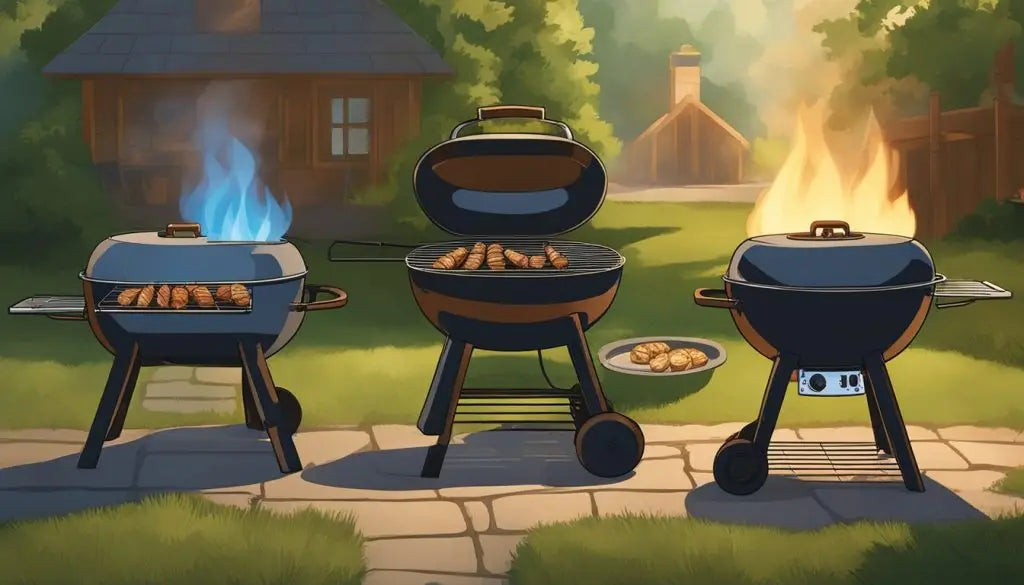
Here's a detailed table to help you figure out the best fuel for your outdoor cooking:
| Fuel Type | Flavour Profile | Heat Control | Convenience | Environment Impact |
|---|---|---|---|---|
| Charcoal | High smoky flavour | Variable, requires skill | Moderate | Higher emissions |
| Logs | Woody, nuanced flavours | Challenging, slow to adjust | Low | Depends on wood source |
| Gas | Milder, cleaner taste | Easy to control | High | Low emissions |
In the end, it's about what you want from your BBQ. Charcoal's authenticity, logs' unique flavours, or gas grilling's convenience? The choice shapes your BBQ experience uniquely.
Safety First: Avoiding Unsafe BBQ Practices
Ensuring safety is crucial when grilling. Every year, accidents happen because of unsafe BBQ practices. By knowing the risks and being careful, your BBQ can be fun and safe. Let's explore how to avoid the dangers of wrong fuel use and ensure a secure grilling experience.
Dangers of Improper Fuel Choices
Choosing the wrong fuel is a big risk. Using the wrong kind can cause dangerous flames, harmful fumes, and explosions. It's very important to pick the correct fuel for your grill and follow the manufacturer's advice.
Tips for Safe Grilling with All Fuel Types
Here are some steps to make grilling safe, no matter the fuel:
- Always read and follow the manufacturer's instructions before lighting up your grill.
- For charcoal grills, only use starter fluids meant for them. Don't add fluid after the coals are lit.
- For gas grills, regularly check for leaks with a soap solution. Look for bubbles that show gas is escaping.
- Keep your grill clean to avoid grease fires.
- Place your BBQ in an open area, far from buildings and trees.
- Have a fire extinguisher or sand ready for emergencies.
- Never leave your grill unattended when it’s on. Make sure to properly put out flames after cooking.
By following these safety tips, you protect yourself, your guests, and your home from BBQ risks.
Barbecuing is fun but always prioritize safety. Avoiding risky BBQ methods and knowing the hazards is important. Always follow the safety advice for all fuel types to prevent accidents. Remember, safety is the key ingredient for a great BBQ.
How Grill Type Influences Winter and Autumn BBQs
The shift from chilly autumn and winter to Spring and Summer's heat (and vice versa) means we must adjust our grilling methods. Choosing the right type of grill greatly affects how successful your winter and autumn BBQs can be. It's key to pick a grill and fuel type that allow for year-round outdoor cooking.
Adapting Your Fuel Choice for Colder Seasons
Cold weather brings challenges for BBQ lovers. It's important to know how different fuels respond to the cold. Gas grills are handy and efficient but might use more fuel in winter and autumn to keep up the heat. Charcoal and logs, however, stay hot longer and are great for cold-weather grilling.
Grilling Throughout the Year: Pros and Cons of Each Fuel
- Charcoal: Offers great flavour but can be tough to light and keep going in wind.
- Logs: Give a strong, smoky taste and keep heat well but need careful watching for stable temperatures.
- Gas: Provides easy heat control but may cost more in cold months due to more fuel needed.
Planning for all-year BBQs means looking at each grill type and fuel's good and bad points. Whether choosing the smoky taste of logs or the easy use of gas grills, picking right for the cold seasons improves your BBQ experience. The right fuel choice for winter and autumn doesn't just affect cooking. It also adds warmth and ambience to gatherings.
Experienced BBQ masters agree that no matter the grill type, the pleasure of all-year grilling shines through. The key is selecting a fuel that fits the weather and pleases the taste. This celebrates the event and keeps the age-old tradition of meeting around a fire alive.
Conclusion
When we look back at the discussion on grilling, it's clear that the choice depends on what you prefer. Charcoal is for those who love traditional grilling and a smoky taste. Logs offer a special flavour, great for those wanting a rustic feel. Gas grills are about quick heating and easy clean-up.
Each grilling option has its benefits and drawbacks. Charcoal gives a special authenticity you can't get with gas, but gas is easier to use. Logs add a unique taste but need more work to maintain. It's important to think about your lifestyle and what you want from your grilling before choosing.
The best choice for grilling depends on what matters most to you. It could be the taste of the meat, the convenience, or keeping traditions. With the insights from this article, you're ready to pick the option that fits your grilling style. We hope your barbecue journey is unforgettable, whether you pick charcoal, logs, or gas.
FAQ
What are the core differences between charcoal, logs, and gas as BBQ fuels?
Charcoal, logs, and gas each have unique qualities. They differ in heat creation, taste they add, how clean they are, and upkeep needs.
What are the different types of charcoal, and what are their advantages and disadvantages?
Charcoal comes as lumpwood or briquettes. Lumpwood offers quick heat and natural taste but costs more. Briquettes burn longer but might have additives.
How does temperature control work with charcoal?
Controlling the heat with charcoal means changing the charcoal amount and air flow. Add or remove charcoal and adjust vents to manage temperature.
What are the advantages of using charcoal for grilling?
Charcoal adds a smoky taste, loved by many. It heats up well for cooking various dishes. Plus, it's portable and simple to store.
How can logs enhance flavors when used as a fuel for grilling?
Logs give a unique smoky flavor to food. Using certain woods, like oak or hickory, boosts dish taste and scent.
How do you light logs for grilling, and what maintenance challenges may arise?
You can light logs with starter blocks or charcoal chimneys. They need regular checking for consistent heat. The burning quality is influenced by moisture and airflow.
What are the advantages and drawbacks of using a gas grill?
Gas grills heat up fast and are clean to use. But they miss the smoky flavor charcoal and logs offer. They also need careful storage and mobility planning.
Why do many grill masters prefer charcoal over gas as their fuel choice?
Many prefer charcoal for its rich smoky taste and high cooking heat. It also allows for diverse cooking ways, adding unique flavors.
How can logs be used for grilling, and what are their multifunctional benefits?
Logs can be both grilling fuel and a feature in wood-burning units. Mixed with charcoal, they give great heat and flavor.
What are the cleanliness factors and rapid heating capabilities of gas grills?
Gas grills are tidy, creating little ash or smoke. They heat up quickly for efficient cooking. Yet, some may miss the classic smoky taste.
What are the pros and cons of charcoal, logs, and gas for grilling?
Charcoal, logs, and gas each have pros and cons. Charcoal offers taste and heat but needs upkeep. Logs enhance flavor but demand attention. Gas is convenient and clean but lacks smoky flavor.
How can I ensure safety when grilling with different fuel types?
Always pick the right fuel for your grill. Using the wrong one can be unsafe. Follow grilling safety tips and make sure the area is well-vented.
What price considerations should I keep in mind when choosing my grill fuel?
Think about fuel cost and the initial spend. Charcoal and logs need regular buying. Gas grills have higher first costs but consider long-term use and efficiency too.
How does grill type influence BBQs in winter and autumn?
In cold seasons, choosing the right fuel helps. Charcoal and logs keep heat well. Gas grills may not perform as good. Weigh each fuel's advantages and drawbacks for year-round grilling.

